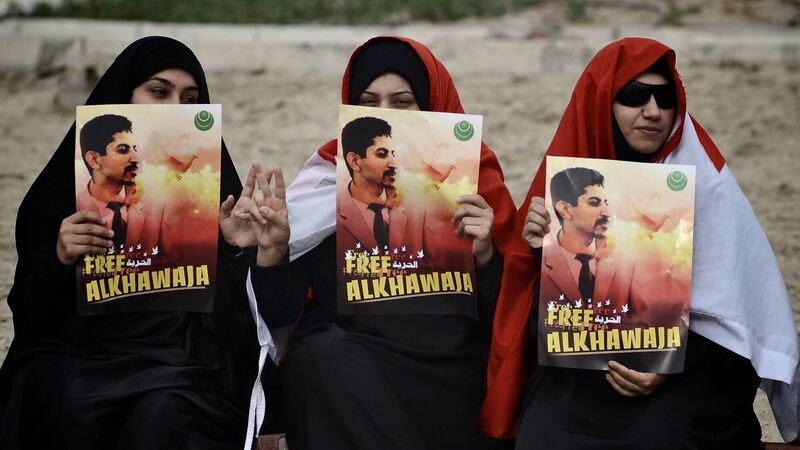Governments must protect the human rights defenders stuck in prison after sham trials

Bahraini Shi'ite demonstrators hold posters of jailed activist Abdulhadi Al-Khawaja during a protest calling for his release in the village of Jidhafs, west of Manama, in April 2012. He was given a life sentence in 2011 and remains in prison. Picture: STR/AFP via Getty Images
International Fair Trial Day is one of those things we shouldn’t need to mark — everyone has the right to a fair trial — but too many people, often Human Rights Defenders (HRDs), are stuck in prison after sham trials.
In 2011, I went to the trial in Bahrain of HRD Abdulhadi Al-Khawaja. I’d worked with him in Dublin for years when I was director of Front Line Defenders and knew him well. He’s a prominent HRD, known internationally for his peaceful advocacy for human rights.













